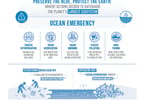The constant struggle to balance on-time performance with safety and profitability may be catching up with airlines in the United States. Does Southwest Airlines care so much about on-time performance and on having the reputation of a profitable carrier that it would overlook cracks in the fuselage? Would the airline go so far to punish its own mechanics if they reported this or other safety issues?
The January 21, 2015 “settlement” of this recent law suit is scary evidence that could suggest a “may be” answer to that question.
When asking if US airlines are safe, eTN had raised this question recently in articles on Hawaiian Airlines, SkyWest Airlines, American Airlines, and United Airlines. Now the focus is on Southwest Airlines.
The newest case involving Southwest Airlines was concluded in January 2015, and the circumstances are shocking.
Lee Seham, Esq, New York, the attorney representing the South West Airlines mechanic told eTurboNews: The judge’s decision resulted in a settlement pursuant to which SWA is required to purge the Mechanic’s file and pay $35,000 in attorney’s fees. The judge refused to make the settlement confidential. This case indicates this is an industry-wide problem”
There is a history of questionable incidents on Southwest Airlines that eTN has been reporting about for some time. In March of 2008, the Federal Aviation Administration (FAA) accused Southwest Airlines of falsifying safety reports. In June of 2009, mechanics raised alarm for outsourcing major maintenance work to El Salvador. In August 2009, the airline grounded 46 planes.
In April 2011, Southwest Airlines grounded 81 planes for inspection following an incident in which one of its flights was forced to make an emergency landing at a military base in Yuma, Arizona, after a 3-foot hole tore open in the fuselage of the plane. No one got hurt so far, but apparently Southwest Airlines did not learn anything from this incident.
On July 2, 2014, Southwest Airlines mechanic Charles Hall performed maintenance on a Southwest Airlines Boeing 737-700 aircraft, tail number N208WN. He had been working for the airline since 2002.
Mr. Hall was assigned by Southwest Airlines to perform a maintenance check of this aircraft according to the Maintenance Procedural Manual. The check requires a mechanic to follow a task card which details the tasks to be accomplished. Item 28 of this task card (MV-1) requires the mechanic to sign an airworthiness release.
This release is required prior to returning an aircraft to service. Part of the MV-1 task card requires the mechanic to “walk-around” the aircraft to visually inspect the fuselage. During his inspection, mechanic Charles Hall discovered two cracks in the aircraft fuselage and documented them. Discovery of these cracks resulted in the aircraft being removed from service to be repaired.
This is all good, and every reasonable person would think such an important scare to the safe operation of an aircraft would be important feedback. The airline should have praised this action for the mechanic to possibly go outside the scope of his assigned repair job to report it.
Instead, on July 5, Charles Hall was directed to attend a meeting to discuss the issue of “working outside the scope of his assigned task.”
Following this meeting on July 9, 2014, Southwest Airlines issued a “Letter of Instruction” advising Charles Hall that he had acted outside the scope of his work. This letter said: “Please be aware that any further violation may result in further disciplinary action.”
Charles Hall filed a complaint against the airlines at the US Department of Labor. In response, he received a second letter of instruction dated July 9, but not delivered until August. This time the language concerning him being disciplined was mysteriously omitted.
Mr. Hall also found that the second backdated letter placed him on the horns of a dilemma, fearing termination if he should ever find another crack and report it. He felt the letter was calculated to, or had the effect to, intimidate and dissuade him and other Southwest Airlines mechanics from reporting the discovery of cracks, abnormalities, or defects out of fear of being disciplined.
Southwest Airlines said it is critical that its mechanics perform the specific inspection assigned and not deviate from the work scope, but agreed in August this letter would not be kept in Mr. Hall’s file.
Southwest Airlines moved for a summary judgment against Mr. Hall, saying this letter no longer had any effect on at least the condition of his employment.
This motion for a summary judgment was denied by Judge Scott Morris in Chery Hills, New Jersey on January 8.
The judge in denying Southwest Airlines’ motion for a summary judgment stated: “Mr. Hall asserted that the letter had the effect of intimidating him and dissuading him and other Southwest Airlines mechanics from reporting the discovery of cracks, abnormalities, or defects out of fear of reprisal discipline. Southwest airlines provided little, if any, evidence at this stage of the proceeding to rebut these allegations. Here I am to apply the facts in the light most favorable to the Complaint, and I reasonably find that Southwest Airlines failed to meet its burden for purposed of a Summary Decision.”
The case was ultimately settled in a January 16 agreement.
Southwest Airlines agreed to retract and rescind any letter of instruction issued to Mr. Hall regarding the event of July 2, 2014. Said letter will not be retained or referenced regarding any future discipline or evaluation of complainant’s performance. The airline further agreed not to take any unfavorable personnel action, discipline, or other manner of retaliation against Mr. Hall, any employee named in the complaint, or any employee identified as a witness or potential witness in this matter, or any employee who participated in this matter.
Southwest Airlines agreed to pay Mr. Hall compensation for reasonable attorney fees and expenses, and pay US$35,000 within 10 days of final approval of the agreement.
A final order of dismissal was issued on January 21, 2015.
The issue of whether or not the report of the crack in the fuselage was ever addressed is not known, as that was not what the court case was about.
WHAT TO TAKE AWAY FROM THIS ARTICLE:
- In April 2011, Southwest Airlines grounded 81 planes for inspection following an incident in which one of its flights was forced to make an emergency landing at a military base in Yuma, Arizona, after a 3-foot hole tore open in the fuselage of the plane.
- He felt the letter was calculated to, or had the effect to, intimidate and dissuade him and other Southwest Airlines mechanics from reporting the discovery of cracks, abnormalities, or defects out of fear of being disciplined.
- Does Southwest Airlines care so much about on-time performance and on having the reputation of a profitable carrier that it would overlook cracks in the fuselage.






















